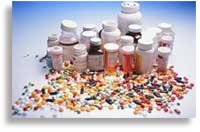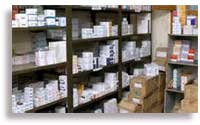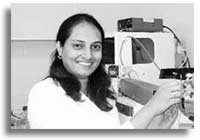PHARMACOLOGY
Career in Pharmacy
Pharmacy or Pharmacology is one of the main disciplines under Biomedical Science and the pharmaceutical industry. There are many disciplines within the Biomedical sciences. Pharmacy is related to health sciences. It is the most important and profession responsible for the preparation, dispensing and appropriate use of medication and which provides services to achieve optimal therapeutic outcomes. A Pharmacists job is to prepare, mix, compound or dispense drugs and medicines, ointments, powder, pills, tablets and injections on the prescription of a medical practitioner, dentist or veterinarian. In detail, they are usually concerned with production of pharmaceutical products, development of the methods or processes of production and quality control. Those in research concern themselves with synthesis of new drugs, new processes, clinical testing of the effects of such drugs on animals and humans, and obtaining the required License from the drug control authorities.
A pharmacist is required to explain the mode and precautions regarding the use of medicines dispensed in a hospital pharmacy, prepare special formulations normally not available in the market, assist the physician in rendering necessary information about various drugs, their contra-indications, incompatibility, etc. If there weren't any pharmacists, there won't be drugs that the doctors could prescribe. Pharmacy has everything to do with drugs - right from their origin, preparation, effects and side- effects, dispensing and laws concerning medicines. Thus, the myth that all those who nurse ambitions of becoming doctors, but fail, end up in pharmacy, cannot be more far - off from the truth. The growth in science and technology and the improved understanding of diseases, their causes and possible remedies, have made Pharmacy a field full of potential and lots of challenges
Nature of Work and Job Description

On the basis of the research done by the pharmacists, medical drugs are manufactured.This is a very important field because a great deal of care has to be taken to ensure the correct composition of drugs. Another area is documentation which involves recording the complete details of drugs. This is an important segment, since any investigation into a drug goes back to documentation.
Current Market and Future Growth Predictions
The pharmaceutical industry in our country is nearly hundred years old. Today, the market mainly comprises over 25,000 manufacturing units and one - fifth of them are involved in making bulk drugs, according to government statistics. Now with liberalization, there are many more job opportunities opening up, especially in multinational pharmaceutical companies. The fact that the industry has been showing nearly 10 percent growth, is much higher than the overall industrial growth.
Eligibility
Educational qualifications required
A student can move on to this line as early as after 10+2. Upon passing the 10+2, one can seek admission to a diploma course. But in order to apply for a degree course the student will need 50 percent in the optional subjects. Although graduation in pharmacy is good enough, a postgraduation increases the employment chances. The career prospects are greatly determined by the specialization you do at the post - graduation level.

There are over 225 programs in Pharmacy conducted by different universities in India. The main courses in Pharmacy are the 2 years Diploma in Pharmacy (D.Pharm), 4 years Bachelor of Pharmacy (B.Pharm), 2 years Master of Pharmacy (M.Pharm) and Ph.d programmes. The admission announcement usually comes out in May- July.Some of the institutions conduct their own entrance test for the admission to B.pharm courses. Main entrance exams for getting into pharmacy courses are State wise entrance exams, AIEEE (for degree courses) GATE (post graduation), etc. Institutions which are like IITs and some other institutions also accept the score of these entrance exams. After obtaining a diploma or degree in pharmacy, and registering with the state Pharmacy Council, it is possible to set up your own pharmacy or chemists and druggists shop to stock and sell medicines and dispense them according to doctors prescription.
Courses
- B.Sc.Pharmaceutical Technology
- Bachelor of Pharmacy (B.Pharm)
- Diploma in Pharmacy (D.Pharm)
- Drug Store Management Course
- Master of Pharmacy (M.Pharm)
- Post Graduate Diploma in Clinical Trial Management
- Post Graduate Diploma in Geriatric Medicine
- Post Graduate Diploma in Pharmaceutical Marketing
Opportunities Abroad

Desired and Essential Qualities
- A keen interest in life sciences
- Should be good in biology and chemistry
- Should be interested in laboratory work
- Should have research mentality
- Loads of patience and a positive bent of mind.
- Should be good at team work.
- In order to be a successful pharmacist, one must have a liking for science particularly life sciences and medicine. An ability to put hard work, strong logical thinking, patience, a sense of responsibility, patient counseling skills are some of the qualities needed for pharmacist.
- Strong analytical abilities and strong academic foundations are needed in the field of research. To be a successful medical representative, one needs to have good communication skills and a flair for convincing people. Retail pharmacists need to have business skills together with good product knowledge.
Job Prospects and Career Options

There is also an employment opportunities within the food and cosmetic industries or within any other industry that requires the assurance that new products are as safe and effective as possible. In government departments pharmacist is the person who maintains proper records according to various Government acts governing the profession of pharmacy. As a drug inspector or government analyst he is to make sure that the drugs manufactured and sold are of standard quality. A Pharmacist can find the following openings
- Industries -Pharmacists here are mostly involved in formulation as well as production of medicines.
- Stores: Pharmacy stores in hospitals or wholesale and retail outlets.
- Product Management: With an MBA as head of the management team.
- Quality Controller: Checks if manufacture of medicines conforms to set standard.
- Drug Inspector:one who checks if manufacturing units adhere to government regulations.
- Medical Representatives are the ones who work while interacting with doctors and selling medicines.
- Lectures: In educational Institutions
- R&D: In research institutes involved in the development
- According to the Union Ministry of Health and Family Welfare, the Pharmacy Council of India is responsible for prescription, regulation and maintenance of minimum educational standards for the training of pharmacists uniformly in the country. The Pharmacy Council of India is a statutory body constituted under the Pharmacy Act of 1948. It also prescribes the syllabus and norms for the institutions and the regulations for diploma course in Pharmacy and undertakes the registration of pharmacists.
- The government figures estimates that there are more than 300 institutions imparting diploma, to nearly 20,000 students every year and over 100 institutions offering degree to more than 5,000 students. An interest in life - sciences is a necessary qualification to specialise in this field.
Institutes
Pharmacology |
Salary Range
Freshers are taken as trainees where an average salary of about Rs. 5,000 can be expected. Then one becomes an executive, assistant manager, deputy manager and manager, where the salary can be upto Rs. 25,000 per month. Basically, the openings are in the formulations and developing are in the manufacturing section or in the quality control section.
